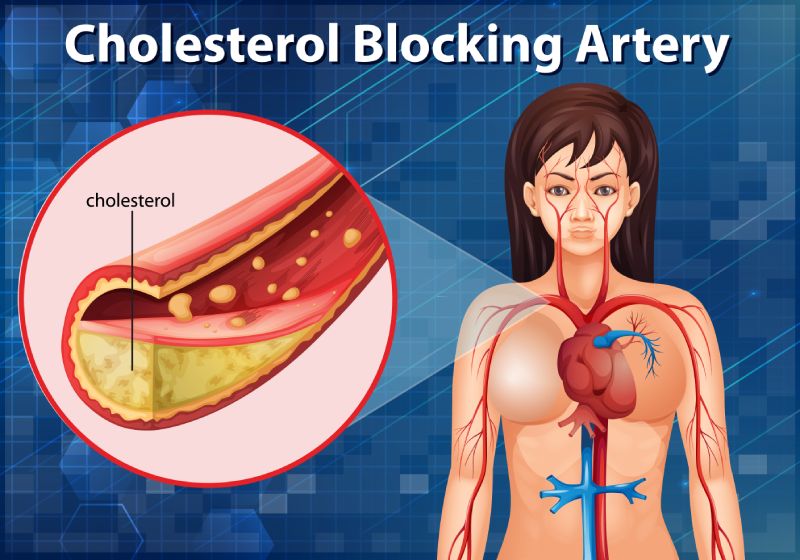While lattes can contribute to high cholesterol levels, it’s not the latte itself that’s the primary culprit; it’s the milk used in the latte. Lattes are typically made with espresso and steamed milk, and the type of milk used can potentially affect cholesterol levels.
Understanding Cholesterol
To comprehend how lattes might influence cholesterol levels, it’s necessary to understand what cholesterol is. Cholesterol is a fatty substance found in your blood, produced by the liver but also acquired through certain foods. It’s vital for the formation of cell membranes, vitamin D, and certain hormones. However, too much cholesterol can lead to health issues, such as heart disease.
The Link Between Latte and Cholesterol
To make a latte, espresso is mixed with steamed milk. The type of milk used in the latte makes a significant difference:
1. Whole Milk: If a latte is made with whole milk, it can be high in saturated fats, which can raise your low-density lipoprotein (LDL) or “bad” cholesterol levels.
2. Reduced-Fat or Skim Milk: If the latte is made with reduced-fat or skim milk, it will contain less saturated fat and thus have less of an impact on your cholesterol levels.
3. Plant-Based Milks: If the latte is made with plant-based milks like almond, soy, or oat, it typically won’t affect cholesterol levels as these types of milk are usually low in saturated fats.
Quantity and Frequency Matter
It’s not only the type of milk in the latte that can influence cholesterol levels, but also the quantity consumed and the frequency. Drinking multiple lattes made with whole milk every day is more likely to affect cholesterol levels than enjoying an occasional latte made with skim or plant-based milk.
Other Factors to Consider
While the saturated fat in the milk used for lattes can potentially contribute to high cholesterol, it’s just one piece of the puzzle. Many other dietary and lifestyle factors can affect cholesterol levels, including:
- Diet: Consuming a diet high in saturated and trans fats can raise your cholesterol levels.
- Exercise: Regular physical activity can help raise high-density lipoprotein (HDL) or “good” cholesterol and lower LDL cholesterol.
- Weight: Being overweight or obese can lower HDL cholesterol and raise LDL cholesterol.
- Smoking: Smoking lowers HDL cholesterol and raises LDL cholesterol.
Conclusion
“While a latte can contribute to high cholesterol, it’s only one factor among many.”
Drinking a latte can contribute to high cholesterol levels depending on the type of milk used and the quantity consumed. However, many other factors, including diet and lifestyle, also play a significant role in your cholesterol levels. If you enjoy lattes but are concerned about your cholesterol, consider choosing lattes made with low-fat or non-dairy milk, and maintain a healthy diet and lifestyle overall. If you’re worried about your cholesterol levels, be sure to consult a healthcare provider for personalized advice.



